This page was written, edited, reviewed & approved by JR Krebs following our comprehensive editorial guidelines. JR Krebs, the Founding Partner, has years of legal experience as a bankruptcy attorney. Our last modified date shows when this page was last reviewed.
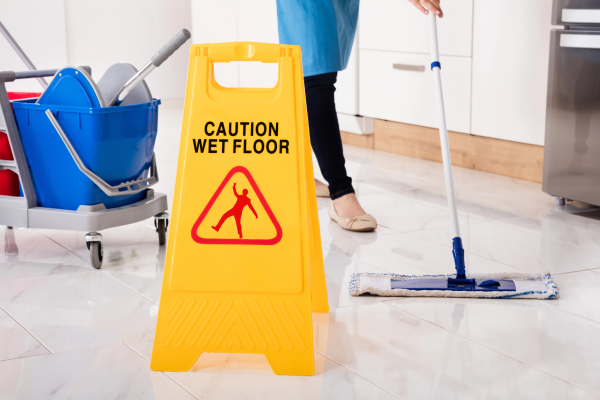
When you're involved in a slip-and-fall incident, one of your first questions could be about the length of time it takes to settle the case. The length of a slip-and-fall case varies depending on the situation's complexity and the severity of injuries.
No two claims are identical, meaning settling can range from a few months to several years. Knowing the factors that shift the timeline can help set realistic expectations for your case.
Numerous variables play a critical role in determining how long your slip-and-fall case will take to resolve. These include the readiness of the insurance company to negotiate, the clarity of fault in the accident, and the amount of evidence available.
At Krebs Law, we can help you recover compensation for slip-and-fall accidents. Learn more about slip-and-fall cases below. Then, contact us for help recovering compensation for your medical bills.
Several factors that vary in each scenario influence the timeline of a slip-and-fall case. The nature of the incident, the clarity of who is at fault, and the complexity of legal issues involved are primary factors.
Additionally, the amount of documentation needed and the efficiency of legal proceedings play significant roles. All these factors combined determine how quickly a slip-and-fall claim can be settled.
The complexity of a slip-and-fall case and the severity of injuries sustained by the fall victims are major factors that affect the settlement time. Major injuries often need complex medical treatment and thorough documentation, which can prolong the process.
A case becomes more complex if there is a dispute over who is responsible or if multiple parties are involved. Such complexities require detailed investigations and might extend the timeline significantly.
The speed of the settlement process often hinges on how quickly the insurance company is willing to negotiate. Some insurance companies are known for their quick response times and willingness to settle claims promptly to avoid prolonged legal battles.
However, others might take a more defensive approach, especially if the claim involves substantial medical expenses and lost wages, which can delay the settlement.
Whether your slip and fall accident lawyer opts to settle out of court or proceeds to trial can dramatically affect the duration of your case.
Settlements can often be concluded faster than trials, which require scheduling, court appearances, and extensive preparation.
However, going to trial might be necessary to secure fair compensation, particularly if the insurance company refuses to offer a reasonable settlement.
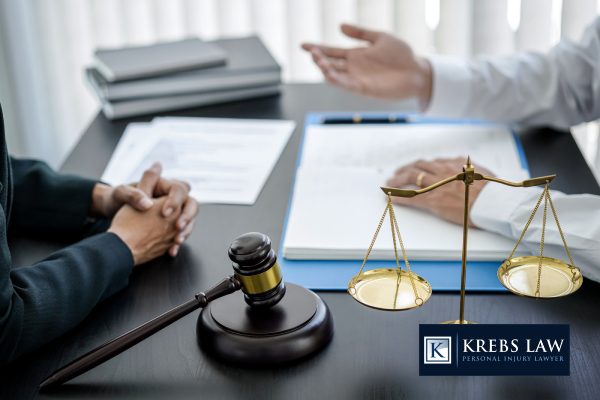
If you've been injured in a slip-and-fall accident, understanding what to expect throughout the legal process can help you feel more prepared. From the initial consultation to potential court proceedings, each stage plays an important role in determining the outcome of your case.
Here's a breakdown of what you can anticipate as your slip-and-fall case unfolds.
If you've been injured in a slip-and-fall accident, taking the right steps is crucial to protect your legal rights and build a strong case. From reporting the incident to potentially going to trial, following these steps will help ensure you have the best chance of receiving fair compensation.
Here's what you need to do after a slip-and-fall accident.
Quickly report the incident to the property owner or manager. Documenting the incident early helps establish the facts of the case.
Visit a healthcare professional to get all injuries assessed. Proper medical records are vital for substantiating your claims.
Discuss your case with a qualified slip and fall personal injury lawyer to review your legal options.
Collect all possible evidence, including photos of the scene, witness statements, and your medical records.
Your lawyer will submit a claim detailing the accident and the resulting injuries.
Your lawyer will negotiate with the insurance company to extract a fair settlement.
Your lawyer may recommend taking the case to court if a satisfactory settlement is not reached.
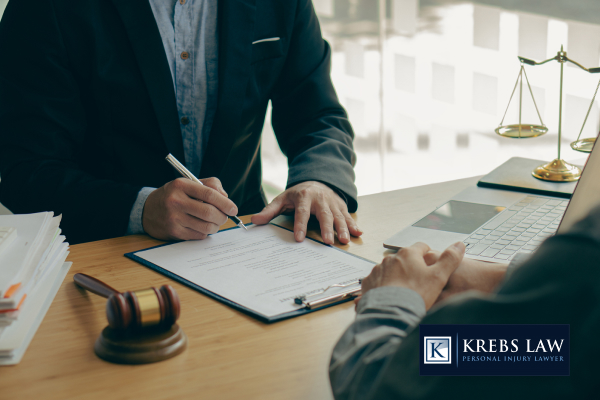
Speeding up a slip-and-fall case involves proactive steps to streamline every phase of the legal process. The first step is ensuring all evidence is gathered and properly documented immediately after the accident.
Quick and clear communication with all involved parties, especially your insurance company and legal team, also helps reduce delays. Furthermore, staying organized and responsive to requests for information or documentation can significantly hasten the process.
Working closely with a personal injury lawyer to gather evidence quickly is crucial for speeding up your slip-and-fall case. A knowledgeable lawyer understands the importance of timely evidence collection, such as surveillance footage, witness statements, and detailed medical records.
By securing this evidence promptly, your lawyer can craft a robust foundation for your claim and push for a quicker resolution. We always put our clients first.
Maintaining clear and consistent communication with insurance companies is vital in avoiding unnecessary delays. Respond promptly to any inquiries from your insurance provider and submit all required documents as soon as possible. This proactive approach can help keep your case moving forward and discourage stalling tactics that might delay your settlement.
Being open to negotiations and flexible can expedite your slip and fall claim. While it's important to not settle for less than your case is worth, being reasonable and open to fair compromise can lead to a quicker settlement.
Your personal injury attorney can guide you in understanding what constitutes a fair offer and when it might be advantageous to settle rather than pursue lengthy litigation.
Finding the right balance between a speedy resolution and a fair settlement is critical. It's natural you want to settle your slip-and-fall case quickly, especially if you are facing financial pressure or ongoing medical treatment.
However, rushing into a settlement without fully understanding the long-term implications can result in compensation that doesn't fully cover your needs.
The second consideration is the complexity of your case. Complex cases involving serious injuries and disputed liability require more time to resolve properly. In these situations, patience can be a virtue that leads to a significantly better settlement.
Your personal injury lawyer will help you navigate these decisions and advise you on the best course of action based on the specifics of your case.
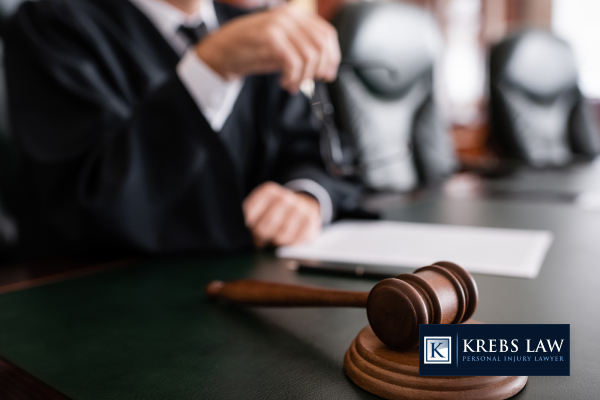
Determining whether your slip-and-fall case will go to trial depends on several factors, including the willingness of the insurance company to offer a fair settlement and the clarity of liability in your case.
Most slip-and-fall claims settle out of court because trials are expensive and unpredictable. However, if the insurance company disputes your claim or offers insufficient compensation, going to trial might be the best option to achieve justice.
The decision to go to trial should not be taken lightly. Trials can extend the timeline of your case significantly and require a lot of preparation. Discussing all possible outcomes with your personal injury lawyer can help you decide whether to settle or go to court.
When you're offered a settlement for a slip-and-fall case, it's important to evaluate whether the offer is fair. A fair settlement should address your financial needs and reflect the extent of your injuries.
Here are some key signs that indicate you're receiving a fair settlement offer.
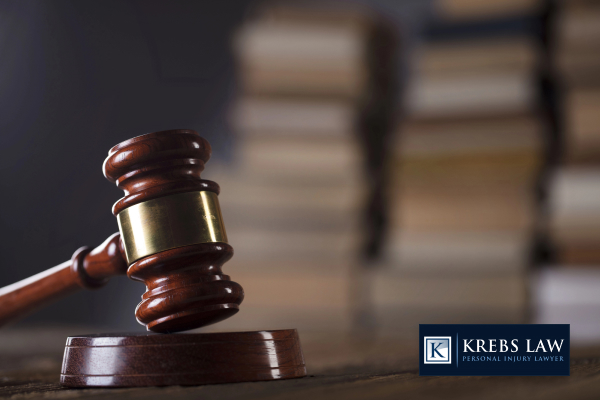
Securing legal representation is crucial if you or a loved one has been involved in a slip-and-fall accident. At Krebs Law, our experienced slip-and-fall accident lawyers are dedicated to helping you navigate the complex landscape of personal injury claims.
We can assess your case by scheduling a free consultation and guide you on the best steps to secure a fair settlement. Contact us today to schedule a free consultation.

J.R. is dedicated to providing personalized representation, avoiding a one-size-fits-all approach. He tailors his strategy to the unique challenges and needs of each client and case, ensuring focused and individualized attention.
His practice mainly covers Plaintiff’s Personal Injury, including car and 18-wheeler accidents, slips and falls, dog bites, defective products, and wrongful death. He also handles commercial disputes on contingency, with experience in contracts, construction, and probate. For any dispute headed toward litigation, J.R. develops an aggressive strategy to maximize your recovery through negotiation, arbitration, or trial.
"*" indicates required fields